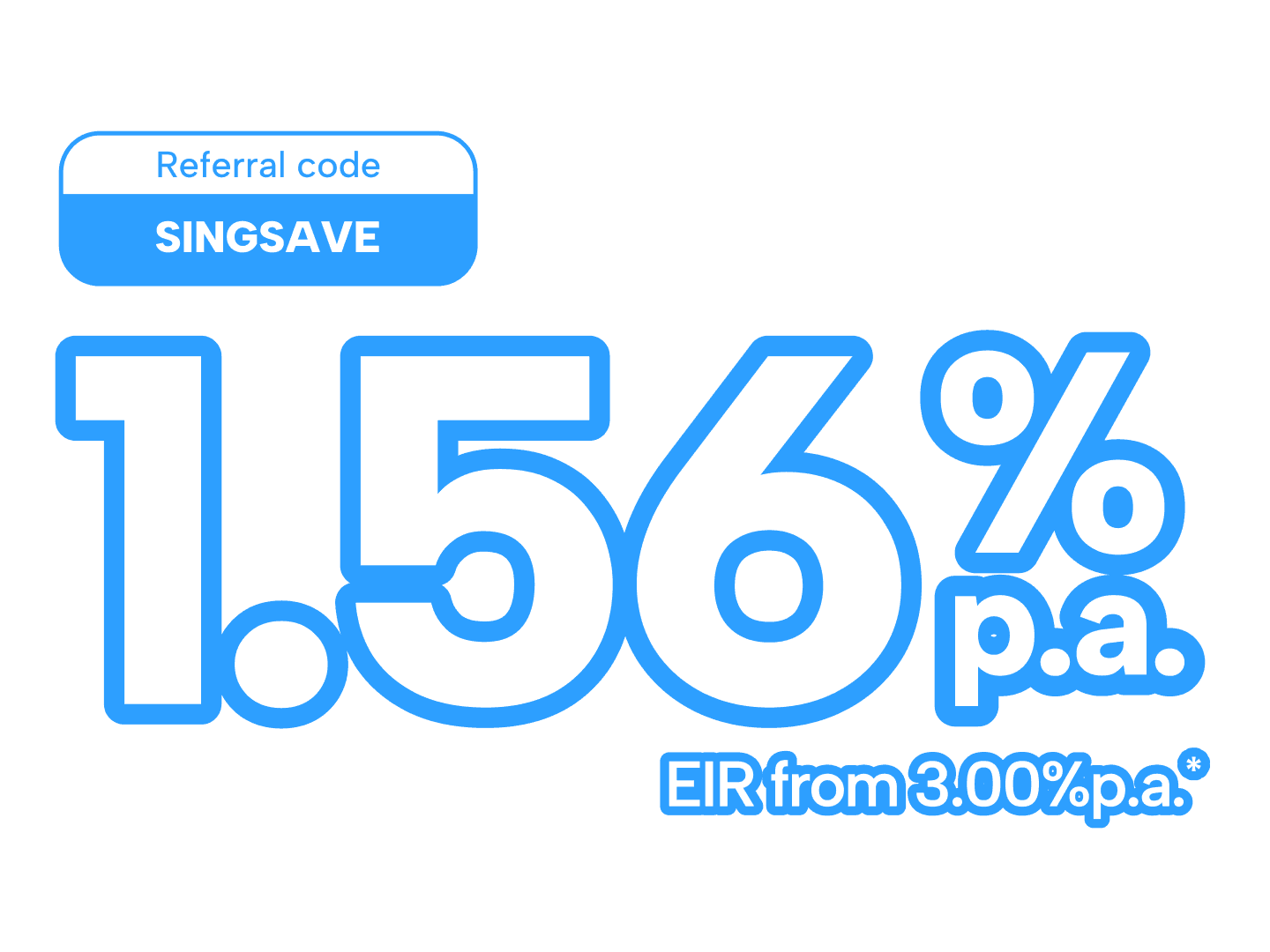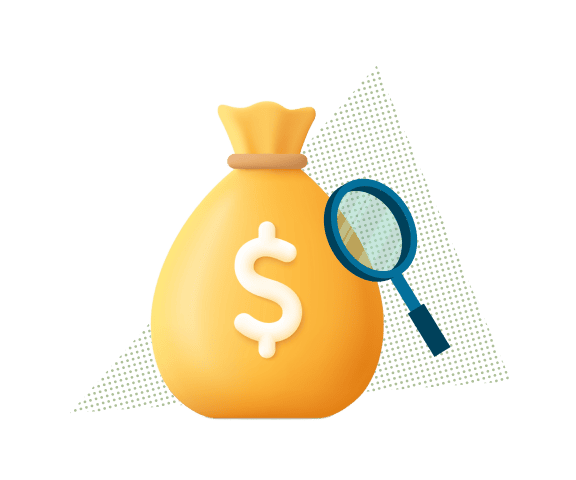Essential Tips for First-Time Home Buyers
Updated: 11 Dec 2025
Ready to buy your first home but not sure where to start? From saving for a down payment to finding the right mortgage and making your first offer, there are many factors to consider.

The journey of purchasing your first home can feel exciting, yet overwhelming. However, having a clear plan in place can help you navigate the process with confidence and ease. These practical tips will guide you through each step — from preparing your finances to signing the final papers — ensuring you're fully equipped and confident that you’re ready to buy a house for a successful homebuying experience.
SingSaver Personal Loans Cashback Offer
Enjoy interest rates as low as 1.08% p.a. (EIR from 2.09% p.a.) and up to S$1,900 in cashback when you apply for a personal loan via SingSaver. Valid till 1 March 2026. T&Cs apply.
Top home loan rates in Singapore - SORA
|
Loan tenor |
First Year interest |
First year monthly instalment |
Three year average interest |
Lock-in period |
|
|
Mortgage Master 3-Month SORA |
30 years |
3.15% |
5.16K |
3.20% |
2 Years |
|
DBS 3-Month SORA |
30 years |
3.05% |
5.09K |
3.05% |
2 Years |
|
OCBC 3-Month SORA |
30 years |
3.05% |
5.09K |
3.13% |
2 Years |
Getting ready to buy your first home
1. Begin saving early
Buying your first home involves more than just paying the price of the property—it also means preparing for upfront costs that can quickly add up. That’s why it’s crucial to start saving as early as possible to ensure you're ready for all the expenses that come with buying a home. This will also help you to get a clear idea of how much money you will need to buy a house. Here are the main upfront costs to consider when saving for a home:
-
Down payment: The down payment is one of the largest upfront costs you’ll face, typically ranging from 5% to 25% of the property's price depending on the type of loan you secure. For instance, a S$500,000 home could require anywhere from S$25,000 to S$125,000 for the down payment.
-
Closing costs: In addition to the down payment, there are closing costs, which include legal fees, stamp duties, valuation fees, and other administrative charges. These typically range from 2% to 3% of the property’s price. For example, on a S$500,000 property, closing costs could be anywhere from S$10,000 to S$15,000.
-
Move-in expenses: After purchasing your home, you’ll need to budget for move-in expenses such as furniture, appliances, minor renovations, and moving services. These often overlooked costs can add up quickly, so it's important to factor them into your savings goal.
Pro Tip: Set a realistic savings goal that includes these major expenses and build a monthly budget around it. Opening a separate savings account specifically for your home fund can help you stay on track and prevent using those funds for other non-home-related purchases.
» Find out: How to save money for a house
2. Determine your budget
Before you start browsing property listings, it’s important to pause and figure out what you can realistically afford. You want to ensure that your dream home doesn't become a financial burden.
Start by reviewing your monthly income, debts, and current expenses. Think about how much you're comfortable spending on your mortgage each month—not just what the bank is willing to lend you. It’s important to set a budget that allows for flexibility without stretching your finances too thin.
Additionally, remember to consider ongoing expenses such as:
-
Property taxes: These can vary depending on location, but they are a recurring cost that can add up.
-
Maintenance and repairs: As a homeowner, you'll need to set aside funds for routine maintenance, upgrades, and unexpected repairs.
-
Home insurance: This is essential for protecting your property and belongings.
Using online mortgage calculators can help you get a rough idea of what you can afford, but the key is to stay within a comfortable range that doesn’t strain your finances. This way, you’ll have peace of mind knowing you’re making a sound financial decision for your future.
» Discover: 6 money saving tips homeowners in Singapore should know
3. Review and improve your credit standing
Your credit score plays a crucial role in securing a mortgage and determining the terms of your loan. A higher score can lead to lower interest rates, which ultimately saves you a significant amount of money over the life of the loan.
Here’s how to improve your credit standing:
-
Check your credit report: Obtain a copy of your credit report from Credit Bureau Singapore (CBS) to assess where you stand. Review it carefully for any errors, and dispute any inaccuracies that could affect your score.
-
Pay off existing debt: Reducing outstanding balances on credit cards and keeping up with payments not only boosts your score but also demonstrates to lenders that you're financially responsible.
-
Avoid new credit applications: Opening new credit lines or taking on additional debt during this period could negatively impact your credit score and complicate your mortgage application.
By taking the time to improve your credit early on, you'll increase your chances of getting approved for a mortgage with a competitive interest rate. Keep track of your progress with a free credit score check and aim for a strong, healthy credit score before you apply.
⚡SingSaver x UOB Personal Loan Flash Deal⚡
Get affordable interest rates from 1.38% p.a. (EIR from 2.65% p.a.) plus up to S$1,900 in cashback and rewards when you apply for a UOB Personal Loan via SingSaver. Valid till 1 March 2026. T&Cs apply.
Selecting the right mortgage
4. Understanding your mortgage options
When you're ready to buy a house, choosing the right mortgage is just as important as picking the right property. The loan you select can impact your monthly payments and long-term financial health, so it’s worth understanding your options.
Here are some common mortgage choices in Singapore:
-
Fixed-rate mortgage: Offers stable monthly repayments over the loan term, which is great if you prefer predictability.
-
Adjustable-rate mortgage (ARM): Begins with a lower interest rate that may rise or fall over time, depending on market conditions.
-
HDB loan: Designed for eligible HDB buyers, this option provides a stable interest rate and allows for more CPF usage.
-
Bank loan: Available for both HDB and private properties. Bank loans may come with lower interest rates but stricter eligibility and repayment conditions.
You’ll also need to decide on your mortgage term. Many buyers choose a 30-year fixed-rate mortgage because it offers stable interest rates and smaller monthly payments spread over a longer period. Alternatively, a 15-year mortgage comes with a lower interest rate, but the monthly repayments are higher due to the shorter loan term.
» Learn: How to calculate home loan repayments
If you don’t plan to live in the property long term, an adjustable-rate mortgage (ARM) could be worth exploring. These typically begin with a lower fixed rate for the first few years, which can help lower your initial costs. However, keep in mind that the rate — and your payments — may change after the introductory period, depending on market conditions.
» Find out: How much you can borrow for home loan
5. Explore grants for first-time buyers
If you're a first-time buyer, you may qualify for grants or schemes that can reduce your upfront costs and help you get closer to being ready to buy a house.
In Singapore, first-time buyers can apply for schemes such as:
-
Enhanced CPF Housing Grant (EHG)
-
Family Grant
-
Proximity Housing Grant
These grants can act as down payment assistance, helping to reduce the upfront cash you need when buying your first home. They may also lower your overall loan amount or even help cover renovation expenses. Each programme has specific criteria based on factors like income, household size, and property type. Take time to review what you’re eligible for — these grants can significantly reduce the financial burden of your first property purchase.
» Refer to this: Complete guide to HDB grants: how much can you get?
Top home loan rates in Singapore - Fixed
|
Loan tenor |
First Year interest |
First year monthly instalment |
Three year average interest |
Lock-in period |
|
|
OCBC 3 Year Fixed |
30 years |
2.45% |
4.71K |
2.45% |
3 Years |
|
DBS 3 Year Fixed |
30 years |
2.55% |
4.77K |
2.55% |
3 Years |
|
HL FInance 3 Year Fixed |
30 years |
2.60% |
4.80K |
2.60% |
3 Years |
6. Compare mortgage rates and fees
Before committing to a loan, take the time to compare mortgage offers from multiple lenders — ideally three to five. Even a small variation in interest rates can lead to significant savings or costs over the life of your loan.
In Singapore, your main options include HDB loans and bank loans. HDB loans offer a consistent interest rate that stands at 2.6% p.a (0.1% above the CPF OA interest rate), while bank rates usually fluctuate between 1.2% to 3% p.a. It's important to weigh not just the rate, but also the flexibility, lock-in periods, and early repayment penalties.
Also, be sure to review additional charges like processing fees, legal fees, and potential valuation fees. Some lenders may allow you to pay upfront to reduce your interest rate — known as discount points. While this may cost more initially, it can lower your monthly payments in the long run if you plan to stay in the home for several years.
» Read about: HDB loan vs bank loan for buying a flat
7. Gather your necessary documents
To keep your mortgage process moving smoothly, start compiling your financial documents early. Most lenders in Singapore will require:
-
Proof of income (e.g., payslips or CPF contribution history)
-
Latest income tax assessment (NOA)
-
Employment verification or company letter
-
Bank statements and CPF account statements
-
Information on existing debts or loans
-
NRIC or passport copy
-
Option to Purchase (OTP) for the chosen property (if applicable)
Having these documents ready ensures a quicker application and helps avoid last-minute delays, especially if you’re aiming for a quick approval or trying to secure a competitive rate.
8. Get a preapproval letter before you start house hunting
Securing a mortgage preapproval letter gives you a clearer idea of how much you can borrow — and shows sellers that you're a serious buyer with your finances in order.
Preapproval involves a lender reviewing your income, credit history, CPF contributions, and employment status. While not a final loan offer, it sets a realistic price range for your home search and strengthens your bargaining power in a competitive market.
Preapproval also makes the process smoother once you’re ready to make an offer — a valuable head start when timing is key.
» Read about: In-principle approval for loans vs actual approvals
⚡SingSaver x Trust Personal Loan Flash Deal⚡
Enjoy low interest rates from 1.56% p.a. (EIR from 3.00% p.a.) plus up to S$1,750 in cashback and rewards when you sign up for Trust Bank Personal Loan via SingSaver. Plus, receive a S$10 FairPrice E-Voucher from Trust when you sign up with the referral code SINGSAVE. Valid till 1 March 2026. T&Cs apply.
Home shopping tips for first-time buyers
9. Work with a trusted real estate agent
The right property agent can make your entire homebuying experience smoother. Look for someone with a solid track record, familiarity with your target neighborhoods, and experience supporting first-time buyers.
A good agent should be proactive in finding listings, provide data on current market conditions, and help you negotiate effectively. Don’t be afraid to ask about their past transactions, client testimonials, and approach to helping buyers land the right home.
» Read about: 7 ways to lower renovation costs if you are moving into your new home
10. Define your ideal home and location
Before falling in love with a unit, take a step back and think about what truly matters to you — whether it’s space, convenience, future resale value, or staying close to loved ones. These decisions shape not only your day-to-day experience, but also how satisfied you'll feel about your home over the long term.
When considering where your first home should be, think in terms of three key priorities:
-
Proximity to family: Staying close to your parents can offer emotional support and the comfort of home-cooked meals. It also allows you to qualify for the Proximity Housing Grant (PHG) of up to S$30,000, but note that this only applies to resale HDB flats.
-
Distance from your workplace: A long daily commute can wear you down over time. If your office is in a central area, you may have more flexibility. But if your job is located on the fringe of the island, you’ll want to avoid buying on the opposite end — unless you're ready to budget for a car, which comes with significant long-term costs.
-
Access to amenities and city life: If vibrant nightlife, shopping, or being in the heart of the action matters to you, then a location nearer to the CBD or an MRT interchange could be worth the premium.
Also, think beyond just the upfront cost — consider ongoing expenses like property taxes, which can vary depending on the property's value and type. Over time, these contribute to the total cost of ownership and should be part of your long-term budget planning.
» Discover: Best housewarming gifts: practical ideas for new/first homes
Also, take time to weigh the pros and cons of different property types — BTO vs resale, or HDB vs condo — based on your budget, urgency, and lifestyle preferences. Explore the neighbourhood’s potential: is there future MRT access planned? Are schools or supermarkets nearby? What’s the community vibe like?
Ultimately, your ideal home should align with your lifestyle — whether that means having an extra bedroom for future plans, being steps away from public transport, or living near your support system. A well-matched home leads to greater comfort, fewer regrets, and a stronger sense of belonging.
» Find out: How long renovations take in Singapore
11. Set and stick to your budget
One of the biggest pitfalls for first-time buyers is overspending. It’s easy to fall for a home just outside your budget — especially when it checks all your boxes. But stretching your finances too thin can create long-term stress and limit your ability to meet other important financial goals.
Many new homeowners later regret buying a property that was simply too expensive. While the Mortgage Servicing Ratio (MSR) caps your monthly housing loan repayments at 30% of your gross income, this isn’t a green light to max it out. Doing so might mean having to cut down or delay other important financial needs, such as savings, investment and insurance.
Instead, aim to spend closer to 25% of your monthly income on your mortgage. This conservative approach gives you more room to handle unexpected expenses, career changes, or income dips without falling behind on payments.
If you plan to use CPF funds for your loan, remember that this money comes from your retirement savings. Draining too much now could impact your long-term financial security — especially if you’re not actively replenishing your CPF or building other retirement investments.
Here are a few tips to keep your budget in check:
-
Work out a realistic repayment amount before you even start shortlisting homes.
-
Stick to properties within or below your maximum budget — especially in a competitive market where bidding wars are common.
-
Account for additional costs like renovations, moving, furnishing, and legal fees. These can add up quickly while you're securing the best renovation loan in Singapore.
» Learn more: Things first-time home buyers must know
12. Inspect every property carefully
Whether you’re visiting a BTO showflat or viewing a resale property, use these visits wisely. Pay attention to more than just aesthetics — look out for water damage, cracks, poor ventilation, aging electrical systems, or signs of pests.
Bring a checklist with your priorities and questions, and take photos or notes to help compare homes later. Check noise levels, nearby amenities, and general upkeep of common areas.
If you’re buying a resale unit, ask the agent about renovation history, maintenance issues, or why the seller is moving. The more you uncover early, the better equipped you’ll be to make a confident decision.
» Explore: 7 lesser-known things you should be aware of before purchasing a BTO flat
Tips for the final purchase
13. Do a proper home inspection
A home might look flawless at first glance, but professional inspections are essential to reveal issues lurking beneath the surface. Trained inspectors assess the structural integrity and major systems of a property, helping you make a confident, well-informed decision.
Be aware that standard inspections often don’t include specialised checks for pests, mold, or hazardous materials, so clarify what’s included and consider additional inspections if necessary. Make sure the inspector has access to all areas — including hard-to-reach spots like crawlspaces or the roof.
While your presence at the inspection isn’t mandatory, it’s worth attending if you can. You’ll gain deeper insight into the condition of the home and can ask questions on the spot. If attending isn’t possible, review the final report carefully and follow up on any unclear findings before committing to the purchase.
» Learn more about: new launch vs. resale condo: which is a better property investment?
14. Be prepared to negotiate with the seller
Negotiation is a key part of the home-buying process, especially when you uncover issues or need to adjust the offer. Depending on the situation, you could ask the seller to carry out repairs, reduce the price to account for them, or even contribute to your closing costs.
How much room you have to negotiate will depend on market conditions. In a seller’s market with high competition, your bargaining power may be limited. But in a buyer’s market, there’s often more flexibility. This is where your property agent’s local expertise and negotiation skills come in handy — they can help you craft a strategy that balances your interests with what the market will bear.
Be prepared to make a reasonable offer, and always base your negotiations on concrete findings, like inspection reports or recent comparable sales.
» Read about: 7 things you need to consider before buying a home
15. Make sure you insure your home
Before the purchase is finalised, you’ll need to secure home insurance — and it’s more than just a box to check. A robust policy protects your property and personal belongings against damage from incidents like fires, floods, or theft. It also offers liability coverage in case someone is injured on your property.
Don’t settle for the cheapest option. Instead, compare plans from different insurers, paying attention to what’s covered, the exclusions, and the amount of coverage provided. Ideally, your policy should cover the full cost of rebuilding your home if it were completely destroyed.
If you own other high-value assets, consider purchasing an umbrella insurance policy for additional protection across all your holdings. Having the right insurance in place offers peace of mind and safeguards the investment you’ve made in your new home.
» Discover the difference between: HDB loans vs. bank loan: which one should you go for?
⚡SingSaver x SCB CashOne Personal Loan Flash Deal⚡
Enjoy SCB's Lunar New Year Interest Rate starting from 1.08% p.a. (EIR from 2.09%), the lowest in the market! Plus, get up to S$1,700 in Cashback when you apply for Standard Chartered CashOne Personal Loan via SingSaver. Valid till 1 March 2026. T&Cs apply.
Buying your first home?
Find the best home loan rates at SingSaver. Compare options from top lenders in Singapore.




